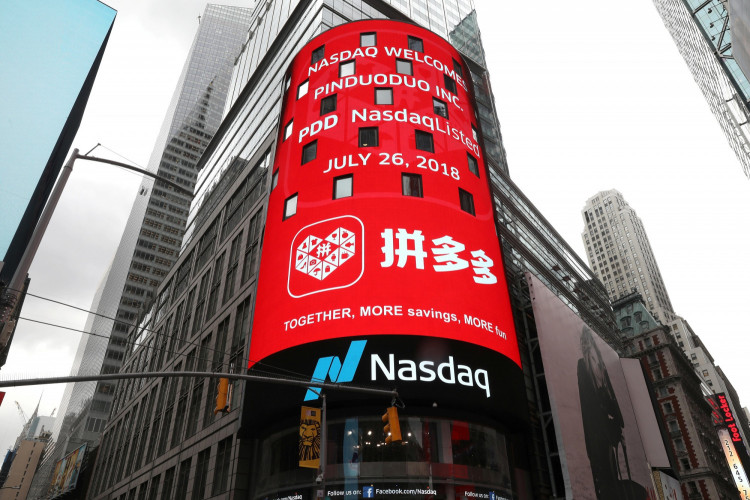In a significant shift in the Chinese e-commerce landscape, Pinduoduo briefly surpassed Alibaba in market value on the evening of November 29, reaching $192 billion compared to Alibaba's $191.5 billion. This marked a dramatic change from just three years ago when Alibaba's market value was around $860 billion, and Pinduoduo hovered around $108 billion, merely an eighth of Alibaba's worth.
The rise of Pinduoduo, once considered an underdog in the industry, has caused a stir among Alibaba's executives and staff. An Alibaba employee expressed shock and disbelief on the company's internal network, reflecting the sentiment of many at the sudden rise of what was once seen as a lesser competitor.
Jack Ma, Alibaba's founder, acknowledged Pinduoduo's success over the past few years and admitted that Alibaba is facing a challenging period. He expressed confidence in Alibaba's ability to evolve and adapt, emphasizing that all great companies are born in difficult times. He also noted the beginning of the AI e-commerce era, presenting both opportunities and challenges.
Pinduoduo's journey began in 2015, carving a niche in the market dominated by Alibaba and JD.com. Its founder, Huang Zheng, acknowledged the gap between his team and Alibaba's but saw potential in the changing landscape of user interaction and internationalization to create a different kind of e-commerce platform.
Pinduoduo, born in the mobile internet era, focused solely on efficient, low-cost e-commerce from day one. Over the past eight years, it has consistently followed this strategy, replicating its model domestically and internationally, aggressively challenging competitors in various regions. Its international version, Temu, has expanded to 48 countries and regions, with over 200 million downloads. Temu's rapid growth has been a significant factor in Pinduoduo's market value surpassing Alibaba.
Pinduoduo's success has been attributed to its focus on low-cost products, appealing to consumers' desire for value. This strategy has proven increasingly effective, especially in the current economic cycle.
In 2006, Huang Zheng was influenced by a lunch with Warren Buffett, organized by Duan Yongping, founder of BBK Electronics. The key takeaway for Huang was the power of simplicity and common sense, principles he applied in tapping into an underserved market.
Pinduoduo's growth strategy has been distinct from Alibaba's approach of expansion and diversification. While Alibaba has ventured into various sectors like cloud services, local life, logistics, and entertainment, Pinduoduo has remained focused on its core e-commerce business.
The company has capitalized on opportunities in lower-tier cities and leveraged Alibaba's logistics infrastructure, Tencent's WeChat traffic, and merchants from Taobao to rapidly grow its user base and revenue.
Pinduoduo's viral marketing tactics and social media integration have solidified its position as a go-to platform for low-cost products. On the merchant side, Pinduoduo has attracted a large number of small sellers who struggled to gain traction on Alibaba and JD.com.
Despite its rapid growth, Pinduoduo faces challenges in managing its vast network of merchants and ensuring efficient operations. The company's internal culture emphasizes simplicity and a focus on core responsibilities, avoiding overreach and maintaining a streamlined organizational structure.
As Pinduoduo continues to grow, it faces the challenge of evolving beyond its initial low-cost strategy and addressing issues such as management and logistics. While it has surpassed Alibaba in market value, Pinduoduo is still a young company and lacks the comprehensive capabilities of its more established competitors.
Alibaba and JD.com have built complex and extensive business empires, encompassing logistics, payment systems, and various other sectors. In contrast, Pinduoduo still has many gaps to fill. Recent issues like the "store explosion" incident and challenges with Temu highlight these shortcomings.
The rise of Pinduoduo reflects a shift in consumer behavior towards value-driven purchases, a trend that has become more pronounced in the current economic climate. As Pinduoduo navigates this new landscape, it remains to be seen how it will adapt and whether it can sustain its rapid growth in the face of evolving market dynamics.





